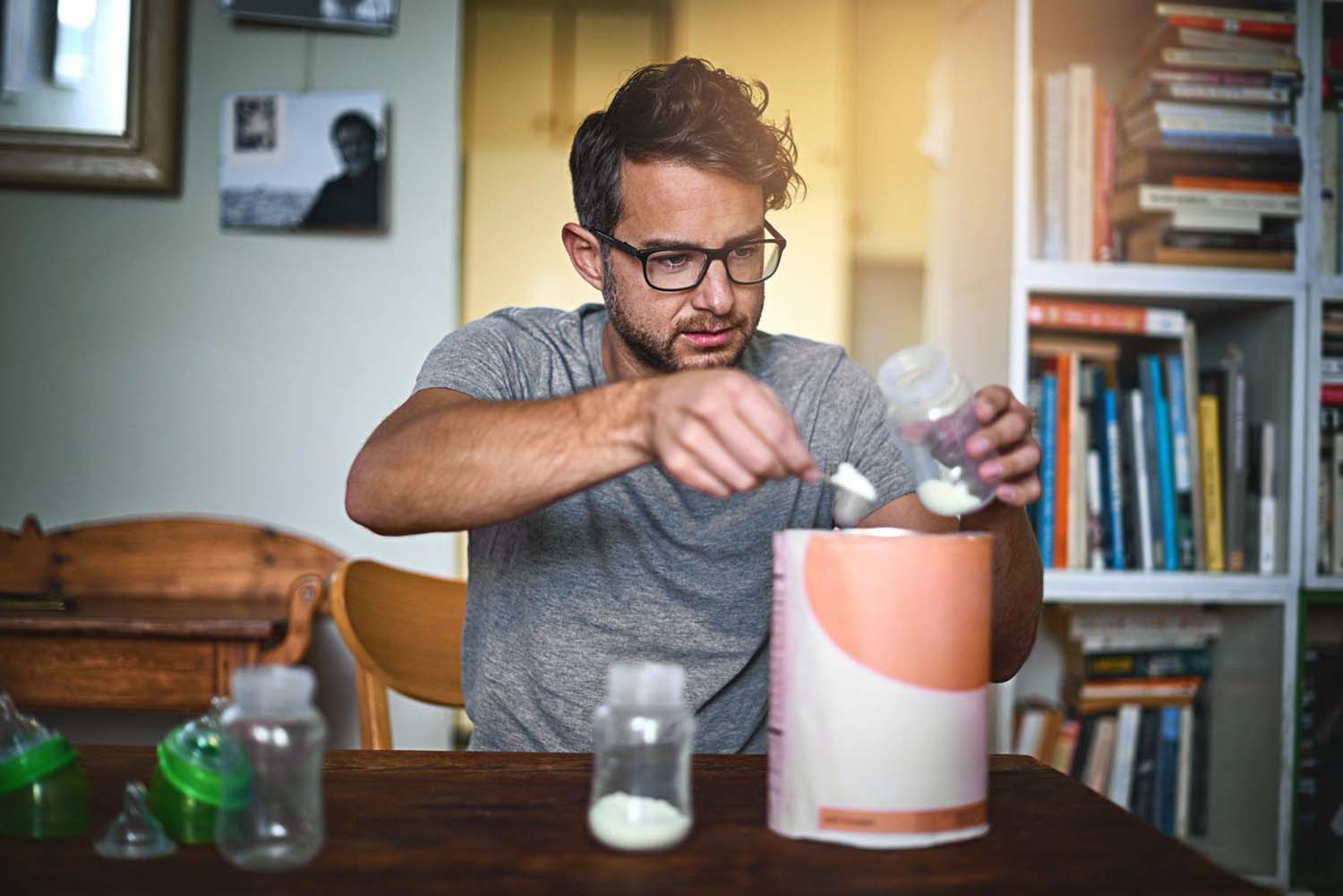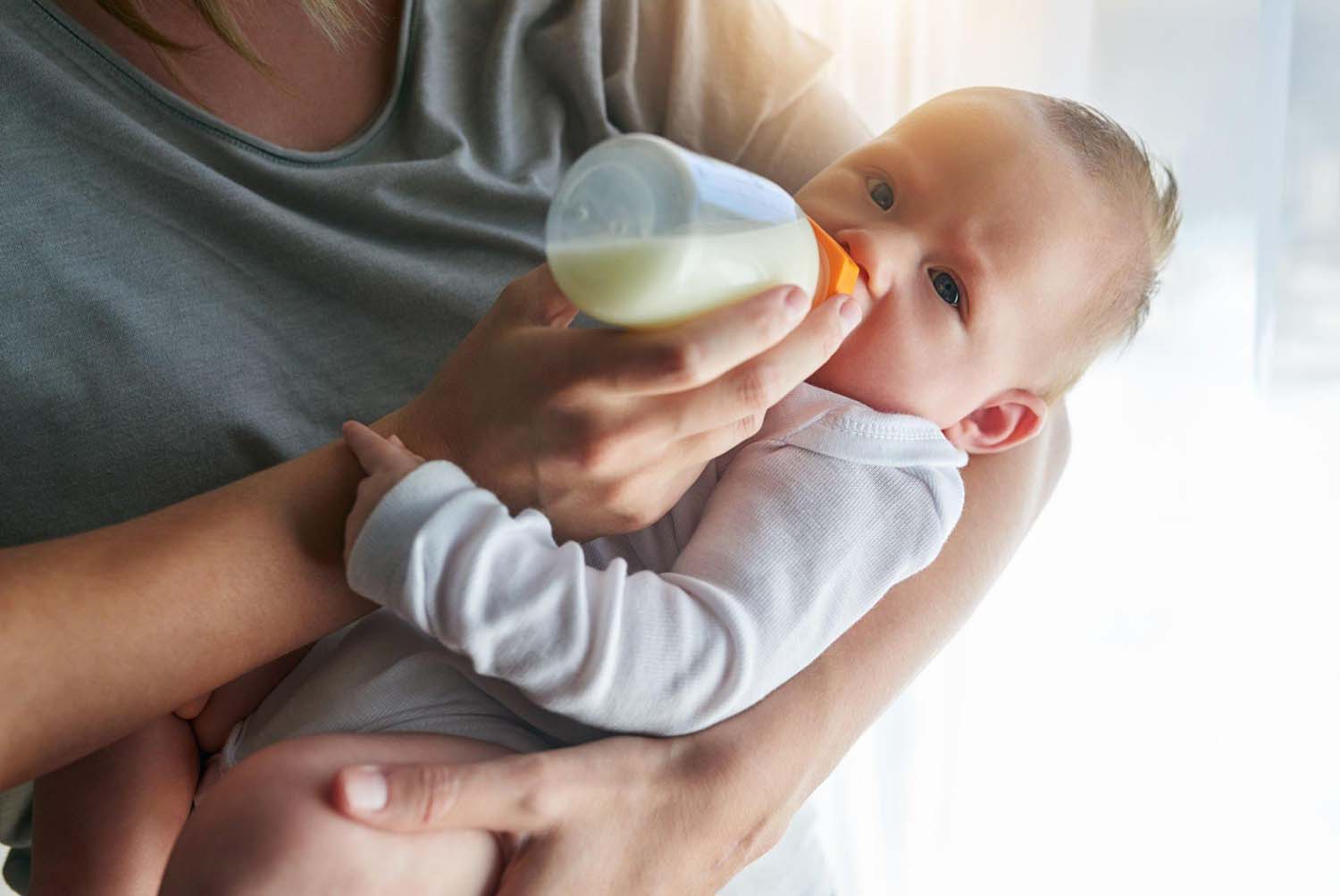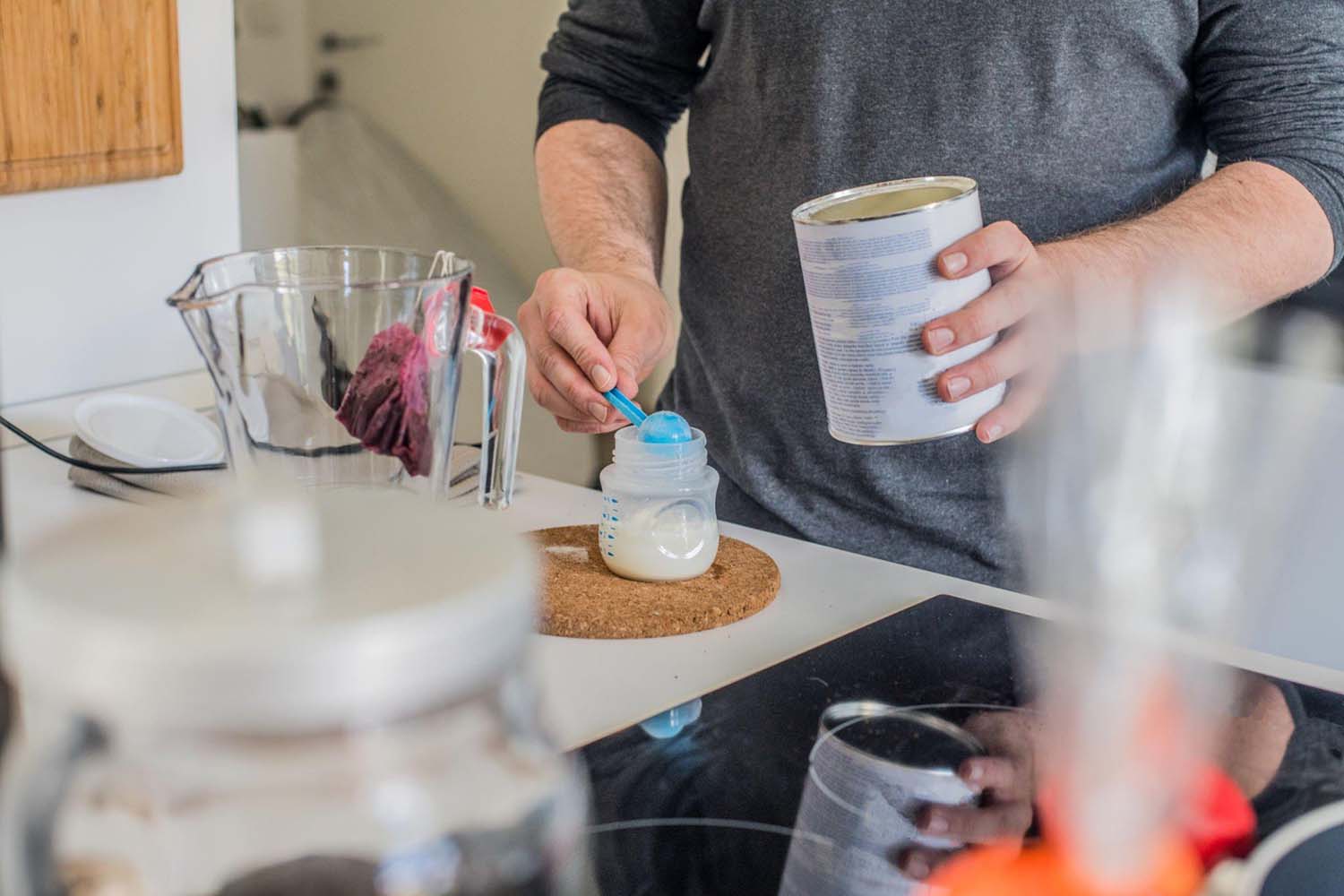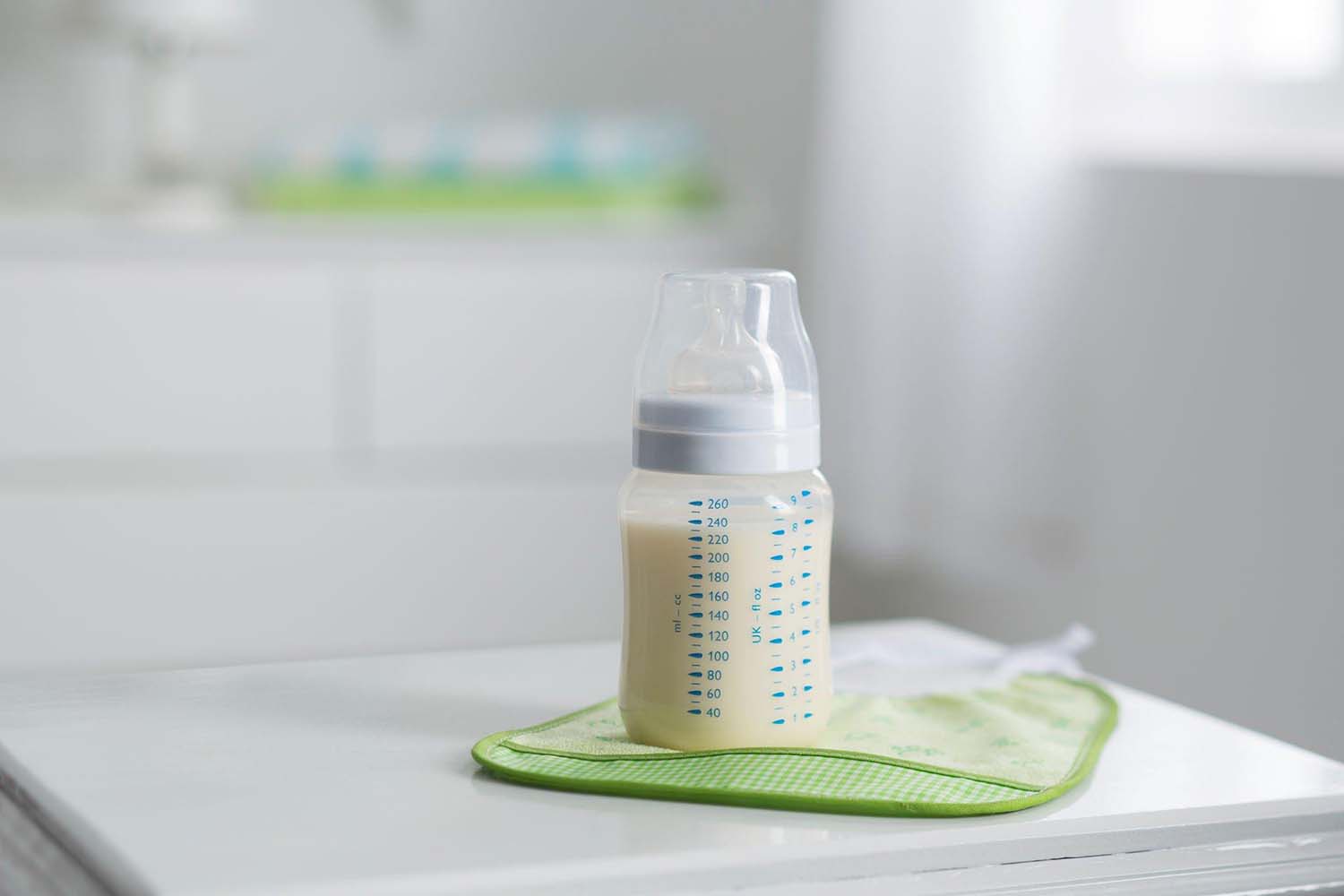Are you a new parent trying to navigate the world of baby formula? With so many options on the market, it can be overwhelming to choose the right one. If you’re curious about European baby formula, you’re not alone! Many parents turn to European formulas for their high nutritional standards and strict ingredient regulations.
In this blog, we’ll demystify European baby formula by diving into the ingredients and benefits of European-made formula. Get ready to get informed so you can decide what’s best for your baby!

Differences Between American and European Baby Formulas
While it may seem like all baby formula is the same no matter where you go, there are some interesting differences to explore! In the US, infant formula is regulated by the FDA, while in Europe, it’s controlled by the European Commission.
In this section, we’ll contrast American and European formula regulations. Understanding these regulatory differences can help parents make informed decisions when choosing the best baby formula for their little ones!
DHA (Omega-3 Fatty Acid)
DHA (Docosahexaenoic acid) is an omega-3 fatty acid important for infants’ brain and eye development. It’s a structural component of the brain and retina and is particularly important during the first few years of life when the brain is developing rapidly.
Because the human body does not produce DHA in significant amounts, it must be obtained from our diet. Many infant formulas are fortified with DHA to ensure that babies receive enough DHA to support their growth and development.
While Europe demands a minimum of 20 mg of DHA per 100 kilocalories of formula, in the US, DHA isn’t a required ingredient at all (although most American formulas do contain it). But that’s not the only difference – European formulas often use fish or algae oil as a source of DHA, while synthetic versions of DHA are more common in the US.
So what does this mean for your little one? Well, some infant nutrition experts swear by the European approach, arguing that it offers greater infant health benefits; others believe that the difference is minor. Ultimately, it’s best to trust your instincts, do your research, and make an informed decision that feels right for your family!
Lactose
Lactose is a sugar naturally present in milk and is used as a carbohydrate source in infant formulas. But why is lactose so important? Not only does it provide babies with energy, but it also aids in nutrient absorption. Lactose is the primary carbohydrate source in human breast milk, which makes it an ideal ingredient in baby formulas!
The regulation of carbohydrates in infant formula is stricter in Europe than in America, as the EU has specific rules on the types and amounts of carbohydrates used. In Europe, lactose is the go-to carbohydrate source, with a minimum lactose content of 10 grams per litre.
In contrast, the US has no minimum requirement and allows a wider range of carbohydrate sources in infant formula, including corn syrup. Because of this regulation, EU formulas typically have higher lactose content than US formulas.

Iron
Let’s talk about the importance of iron in infant formulas! Iron is a mineral that is essential for the production of hemoglobin in red blood cells, which is responsible for carrying oxygen throughout the body. It is also essential for proper muscle and brain function.
Iron is crucial for infant development and is found naturally in breast milk. When babies don’t receive sufficient iron, they are at risk of anemia and impaired cognitive development, growth, and immunity. Both the US and EU require iron in infant formulas, but the amount and type of iron used may vary.
The US sets a higher minimum requirement for iron in infant formulas than the EU, at 0.3 milligrams per 100 kilocalories, compared to the EU’s minimum of 0.15 milligrams per 100 kilocalories. Interestingly, some EU formulas use a more easily absorbed form of iron than the types commonly used in US formulas.
Both the US and EU recognise the importance of including iron in infant formulas to support healthy growth and development but differ in how much they believe is necessary to protect against deficiencies.
Synthetic Nutrients and Additives
Several ingredients are permitted in baby formula in the US but not in the EU, including certain synthetic nutrients, including beta-carotene, lutein, lycopene, nucleotides, and taurine, and some food additives, such as carrageenan.
Beta-carotene, lutein, and lycopene are all carotenoids, pigments found in fruits and veggies. They are added to baby formulas to help support eye health and development. Meanwhile, nucleotides, the building blocks of DNA and RNA, are included to support infant immunity.
Further, taurine is an amino acid that supports brain and eye development. Finally, carrageenan is a fibre extracted from red seaweed and is commonly used as a thickener and stabiliser in food products, including infant formula.
The fuss surrounding these ingredients is centreed on their safety and necessity. As you navigate the world of infant formula, take the time to read and compare labels, as you may want to avoid some of these more controversial ingredients.
Organic Certification
For parents who prioritise an organic diet for their babies, you’ll be glad to know that both the US and EU have organic infant formula options. Organic formulas in both regions must meet regulations set by the USDA in the US and the European Commission in the EU. However, the EU has more stringent regulations regarding synthetic pesticides and fertilisers in organic farming.
Moreover, some European organic infant formula manufacturers seek additional private organic certifications. These certifications often have stricter standards than the EU’s organic regulations and can provide consumers with extra reassurance about the quality and safety of the product!
Some of the most well-known private organic certifications for baby formulas in Europe include Demeter and Bioland. These certifications require that a certain percentage of ingredients used in the formula come from biodynamic or organic farming practices and meet additional standards for animal welfare, environmental sustainability, and processing methods.
Overall, it’s important to consider the varying regulations between the EU and USA. By staying informed and aware of these differences, you can make an informed decision and ensure your baby gets the high-quality, organic nutrition they deserve!

Benefits of Formula From European Brands
European formulas may be worth considering for those of you seeking a wider variety of options and different ingredients when formula feeding. Thanks to different regulations, European formulas offer a diverse selection of milk types, like goat milk, and other ingredients, like probiotics, that might not be as commonly found in their American counterparts.
Plus, with no market monopoly on European baby formulas, parents can rest assured that they won’t face the same supply chain issues we’ve seen in the US during the recent formula shortage. So, let’s dive into the enticing advantages of European infant formula that every parent should know about!
More Formula Options to Choose From
Europe offers a broader variety of milk options compared to the USA. One notable difference is the availability of formulas based on goat’s milk, which is readily available in the EU.
The EU also has many special formulas, including hypoallergenic options, comfort formulas, and anti-reflux formulations. These special formulas are especially beneficial for infants with specific dietary needs or sensitivities.
And as we mentioned before, many European formulas hold additional private organic certifications with even more stringent regulations providing additional peace of mind for parents.
High-Quality Ingredients
Prebiotics and probiotics are commonly included in European baby formulas as they are believed to positively impact gut health and digestion. Also, choosing European formulas guarantees your baby will receive DHA, which is a massive plus for many parents. While some American formulas also contain these ingredients, they are more consistently found in European formulas.
No Market Stronghold
The infant formula market in the US has long been dominated by a handful of major brands, leading to market control issues and more limited options for parents. The formula shortage in the US highlighted the fragility of the formula supply chain and the consequences of market strongholds.
In contrast, the European market for infant formula is very diverse, with a larger number of brands and a wider range of options available to parents. During the formula shortage, some European brands even stepped in to fill the gap in missing formulas, which shows the resilience of the European formula industry!

Where to Buy EU Baby Formula
If you are keen to try out European formulas, you should know that they are not FDA-approved. This is because, as we discussed, the FDA has slightly different regulations for baby formula than Europe.
Though there may be some anxiety centered around the formula not being FDA-approved, the European Commission is dedicated to strictly regulating this product. European formulas are nutritionally complete and widely used by parents worldwide!
When purchasing infant formula from overseas, buying from reputable online retailers that sell authentic products with safe and reliable shipping practices is crucial. Buying from untrustworthy sources puts you at risk of receiving counterfeit products, which may be unsafe for your baby’s health or result in prolonged shipping times.
Reputable online retailers that carry European organic formulas for purchase include Organic’s Best shop and Baby Milk Bar. These companies have proper storage facilities, shipping processes, and a solid reputation you can depend on. You can rest assured that you’ll receive safe, high-quality organic baby formulas by choosing one of these top-notch retailers!
Organic Baby Formula Brands
For parents new to European-style formulas, three brands stand out as exceptional options: HiPP, Holle, and Lebenswert Bio. We’ll give you a quick rundown about each of these popular brands and their offerings, and if your interest is peaked, feel free to check out their products on Organic’s Best Shop or Baby Milk Bar!
Looking for an organic formula that prioritises the health of your little one and the planet? Look no further! These brands offer certified European organic formulas with at least 95% organic ingredients and avoid unwanted additives like corn syrup and GMOs. And that’s not all – they also use sustainable farming and production methods and treat their farm animals humanely!
HiPP offers a range of organic baby formulas inspired by breast milk based on 50 years of nutritional research. Their formulas are made with natural ingredients and produced in a carbon-neutral facility. They have a wide selection of formulas based on cow or goat’s milk and also provide specialty formulas, all with the additional HiPP organic seal!
Another big player in Europe is Holle organic formula. Holle has produced organic baby food for over 85 years, using clean and gentle processing methods. Holle formulas are made with simple recipes kept as pure as possible. Plus, all their products are either climate-neutral or positive!
Holle offers a range of cow and goat’s milk-based formulas using organic and biodynamically grown ingredients. Biodynamic farming is a holistic and more sustainable approach to agriculture that emphasises the interconnectivity of all living things in the farming ecosystem. Many of their baby formulas are also Demeter-certified, Europe’s strictest private organic certification!
Last but not least, Lebenswert Bio produces organic milk formulas that hold the Bioland certification so that you can feel good about even more strict organic standards being met. Their formulas are made with skimmed milk from cows raised on Bioland organic farms.

Takeaways to Consider When Choosing a Formula:
We hope you learned a lot about the many excellent formula options available in Europe and how these differ from those made in America. When it comes down to it, remember that all infant formula, European or otherwise, is designed to satisfy your baby’s nutritional needs.
That being said, there are, of course, differences that we discussed today that may lead to preferring one option over another. So, here are a couple of things to remember on your hunt for the best baby formula!
1. To make an informed decision about which infant formula to choose, it’s essential to understand the regulations and ingredients used in the USA and Europe and how they may differ or overlap. Doing so allows you to be guided toward the option that best fits your preferences and values.
2. If you’d prefer a European formula, choose a reliable online retailer like Organic’s Best Shop or Baby Milk Bar to ensure your baby’s formula is authentic and handled with care.
3. To make an informed decision on whether to opt for a conventional or organic formula for your baby, it’s essential to consider the potential benefits of an organic diet. This includes clean ingredients, environmental sustainability, and animal welfare.
Choosing The Best Formula For You
To wrap things up, European-style formula is making waves because of its top-notch nutritional standards and rigorous organic regulations. The contrast between American and European infant formulas lies in nutrient composition, organic standards, and supply chain differences.
You can take charge of your little one’s health by studying and comparing product labels and consulting your pediatrician to make an informed decision about what to feed your baby.
Ultimately both the US and Europe provide formulas designed to meet your baby’s needs, so pick one that aligns with your baby’s needs and your values to give your little one the finest nutrition possible.








